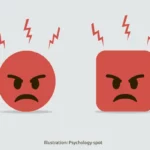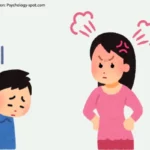
Depression is one of the most harmful disorders existing, that is why so many people worries about how to treat depression. Silently and gradually it takes over the person, first it takes away the desire to have fun, then it suppresses the flavor of the things that previously enjoyed and, finally, it takes away the meaning of life, to the point that many consider suicide as the only possible solution.
Depression also has a huge impact at a physical level. In fact, among the signs of depression, neuroscientists have discovered that the brain of depressed people shows a 30% higher level of inflammation. Unfortunately, inflammation at the brain level is the prelude to neurodegenerative diseases such as dementias.
Get out of depression, escape from that deep hole, is not easy, so it is important to stay alert to detect the first depression symptoms and treat them as soon as they appear. It is easier to overcome depression in its early stages than treat a major depression that has been established for years.
This video about depression can help you understand it better and deal with its symptoms:
10 tips about how to treat depression
1. Do more physical activity
When we are depressed our movements slow down and we even speak more slowly, it’s as if our life passed in slow motion. These movements are recorded by the brain, which only serves to reinforce apathy and depression. However, when we do physical activity we break that vicious circle. Numerous studies have shown that endorphins that are generated during aerobic activity are a natural remedy to treat depression.
An experiment conducted at the University of Georgia in which depressed people trained on a stationary bike during 30-minute sessions, 4 times a week, revealed that after 6 weeks, the depression symptoms had decreased significantly and those improvements were maintained even three months later, when they were reevaluated. Therefore, even if it is difficult for you and you feel that you don’t like anything, going for a walk in a natural environment, for example, will become a natural remedy for depression.
2. Socialize more
Depression usually isolates us, and loneliness becomes a bad companion. That’s why, even if it’s difficult for you, it’s important that you do not lock yourself up at home: go for a walk, call that friend you have not seen for weeks or try to meet new people. An investigation carried out at the University of Toronto revealed that those who suffer major depression can quadruple the chances of recovering completely if they have the appropriate social support.
The explanation comes from another study conducted at the University of Oxford, in which it was noted that interpersonal relationships have a powerful effect on brain biochemistry. These researchers found that interpersonal relationships produced an increase in oxytocin, β-endorphin, dopamine and serotonin, some of the neurotransmitters that are affected by depression and that are essential to feel good. In fact, many of the medications for depression are selective inhibitors of serotonin reuptake. These neurotransmitters will also help you alleviate pain, since it has been shown that depression hurts, literally. That means that social relationships and the emotional support they offer are fundamental pillars to treat depression.
3. Structure your day and regain control
It’s a simple advice about how to treat depression but it can work miracles, literally. When we are in the grip of depression, making decisions becomes an uphill path. The simple perspective of having to decide overwhelms and tires us, so we prefer to remain in the arms of apathy, which will plunge us into a deeper hole.
However, if you structure your day in advance, if you have all your activities scheduled, it will be much easier for you to do them. On the contrary, the lack of routine and chaos can generate the feeling of helplessness and loss of control over your life, which will increase depression. Adding a plan can help you to make everything flow easier, it will allow you to regain that feeling of control and it will diminish the feeling that you are a passive observer in life.
4. Follow a regular sleep pattern
Sleep is essential for the brain to eliminate the waste substances from its daytime metabolism, so that it can regenerate. While we sleep, we also reduce the emotional impact of the situations we experience during the day, so that we stop seeing the world through such a gray prism. If we do not sleep well, we fall into a vicious circle of negativity, so it is not strange that among the causes of depression is insomnia: people who suffer from insomnia are 10 times more likely to develop depression.
On the other hand, depressed people also tend to have difficulty sleeping, which further exacerbates the depression symptoms. Therefore, maintaining a healthy sleep routine will have a favorable effect on your mood. In fact, a study conducted at the University of Michigan found that the effectiveness of antidepressants improves by 63% when the person manages to sleep for eight hours.
5. Practice mindfulness meditation and/or yoga
Few exercises are as effective in overcoming depression as mindfulness meditation. The key is that mindfulness is not just an exercise but an attitude towards life. It implies learning to be in the present moment, fully and without criticism. It also implies accepting the emotional states, without pretending to fight against them, so that they stop being annoying and finally end up vanishing.
A study conducted at the University of Wales with 145 people suffering from major depression, showed that the practice of mindfulness is not only effective in relieving depression but also prevents relapses over time. If meditation does not convince you, you can treat depression with yoga, a practice that will also help you relax and generate a positive mood.
6. Make sure you get enough sun
One of the simplest strategies on how to treat depression is to take a little sun, which facilitates the production of vitamin D. It has been found that when the level of vitamin D falls below 20 ng/mL, the risk of suffering from depression increases by 85%. It is also known that vitamin D supplements help fight depression. Also, the sun’s rays increase the production of serotonin, a neurotransmitter related to the feeling of well-being that can help you overcome depression.
In addition, being in contact with nature is very beneficial for the mood. This was confirmed by psychologists from the University of Queensland, who discovered that people who spend just 30 minutes outdoors, in a park, even when seated, enjoy better mental health.
7. Dedicate few minutes a day to a hobby
One of the most powerful weapons of depression is apathy, the inability to motivate you. The best way to fight it is dedicating time to an activity that really thrills you. Keeping the mind active and reaching a state of flux is one of the best strategies to overcome depression.
Therefore, try to get involved in activities that you enjoy and decrease the pressure and commitments. Often, when depression is in its early stages, it is enough to reduce daily stress and give yourself time to relax and regain the pleasure of life.
8. Take advantage of the healing power of music
Music is a very powerful tool to regulate the mood since it directly affects the oldest structures of the brain. Music mocks the boundaries of the rational mind and hits directly the amygdala, the emotional command center in your brain.
In fact, numerous studies have shown that both, listening to music and singing or even dancing, are beneficial activities to treat depression. Music is a source of joy and stimulates the production of endorphins, neurotransmitters that will make you feel more relaxed and happy. Therefore, whenever you can, enjoy your favorite music.
9. Make cognitive restructuring
Depression is not just a state of mind, it feeds on the negative automatic thoughts that go around in your mind. Therefore, if you really want to get out of depression, you will have to do a deep inner work. The first step is to detect the critic that we all carry inside. That critical voice will see everything through a negative prism, reinforcing the idea that the world is a terrible and hostile place and affecting the image you have of yourself.
When you hear that voice, take note of those thoughts and restructure them in a more objective way. Remember that it is not you who speaks, but depression, which often makes erroneous generalizations such as: “I can’t get out of depression”, “I am a failure” or “Life is horrible”. Fighting depression means facing this internal enemy. Imagine what a friend would say if you told him that. Surely he would give you contrary reasons, so that you would realize that they are not objective thoughts but pessimistic and catastrophic ones. It is about trying to see the more positive side, so that you find a middle point.
10. Commit to eliminate depression
Desire is not enough to eliminate depression, it is necessary to commit to change. If you think “those tips to fight depression are very good but won’t work for me”, then they will not work. Actually it is an excuse to stay in the comfort zone that has created the depression, an area where you do not feel good but, since it is known, gives you some security before the uncertain.
Therefore, it is important that you assume a commitment to yourself, that you try different strategies to fight depression and, above all, that you are aware that it is a process in which you will probably have ups and downs. It’s perfectly normal, you should not let them discourage you. Remember that “falling is allowed, but getting up once again is mandatory”.
Sources:
Pearce, E. et. Al. (2017) Variation in the β-endorphin, oxytocin, and dopamine receptor genes is associated with different dimensions of human sociality. PNAS; 114(20): 5300-5305.
Fuller, E. et. Al. (2016) Flourishing after depression: Factors associated with achieving complete mental health among those with a history of depression.Psychiatry Research; 242:111-20.
Arnedt, j. T. et. Al. (2016) Effects of Restricted Time in Bed on Antidepressant Treatment Response: A Randomized Controlled Trial. J Clin Psychiatry.
Shanahan, D. F. et. Al. (2016) Health Benefits from Nature Experiences Depend on Dose. Scientific Reports; 6: 28551.
Maratos, A. (2011) Music therapy for depression: it seems to work, but how? The British Journal of Psychiatry; 199(2): 92-93.
Teasdale, J. D. et. Al. (2000) Prevention of relapse/recurrence in major depression by mindfulness-based cognitive therapy. Journal of Consulting and Clinical Psychology; 68(4): 615-623.
Doyne, E. J. et. Al. (1983) Aerobic exercise as a treatment for depression in women. Behav Ther; 14: 434–440.



